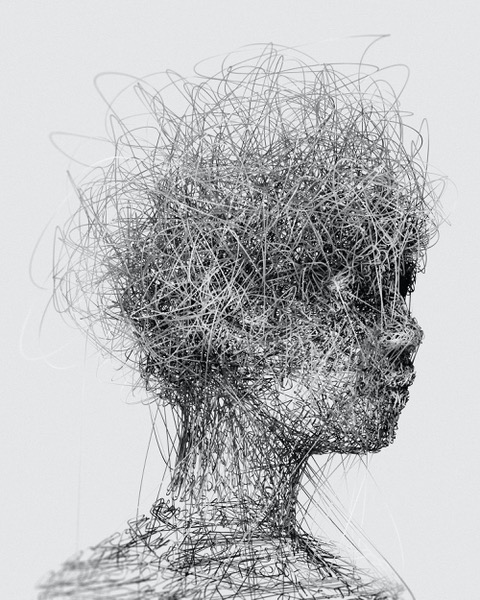Suddenly losing your hair is alarming and can honestly be traumatizing. Over the past few years, there seems to be more and more people dealing with sudden hair loss for a number of reasons.
Normal Growth Cycle
First I will briefly go over the stages of a hair’s life span. This will help make sense of what is happening.
Each hair strand goes through 4 stages during it’s life span.
Anagen- this is the active growth phase and usually lasts anywhere from 3-8 years. 90% of the hair on your head is in this stage at any given time.
Typically hair will grow about 1/2 inch per month on average. Summer months can be a bit more rapid, and in winter it may slow down. We tend to be more active in summer, we sweat more, hair is fed through our blood supply, so circulation=active well fed hair folicles.
Catagen- this is a shorter phase (about 10 days) in which your hair ends it’s growth cycle, and separates from the blood supply.
Telogen-this is a resting period where your hair stays in place but is not actively growing either. This lasts about 3 months and 10-15% of the hairs on your head are in this phase at any given time.
Exogen is the final phase of the hair’s life span. This is when the hair is released from the follicle and shed as a new baby hair starts to grow in the follicle. The circle of life.
Shedding anywhere from 80-100 hairs per day is normal. This sounds like a lot, but it happens throughout the day, and we usually don’t notice it unless we wear our hair up most of the day and then we see it all at once when we take our hair down.
Now that we have a clear understanding of what is going on when hair is falling out at an alarming rate?

Disruptions to the Natural Hair Growth Cycle
It comes down to stress and hormones. When our body is going through stress, we go into a fight or flight mode. We all know that, right? Whether a physical stress such as a surgery, drastic change in diet, an ongoing lack of sufficient calories and nutrients or an illness like COVID. Or an emotional trauma such as divorce, losing a loved one, dealing with a pandemic. Lack of sleep is both mental and physically damaging to us.
What this has to do with hair is actually very simple:
when our bodies are hit with stress, our hormones signal survival mode. Energy is being reserved for the vital function of our systems, and guess what’s last on that list and first to go? That’s right, our hair.
Now there is also a chronic hair loss cycle which is related to thyroid issues. What happens here is a constant triggering into the telogen phase.
Now What?
When we can get to the root cause of why a sudden case of hair loss hits, we need to look at what to do to get it to grow back in and to grow back in strong and healthy.
Obviously, you may need to see your doctor to make sure there is not something else going on, but there are a number of things you can control.
- Exercise. Physically moving and working up a sweat does indeed stimulate your blood flow which in turn feeds your hair follicles.
- Scalp health-shampooing your hair regularly helps your circulation, and also allows oxygen to the scalp and prevents clogged hair follicles. Getting in salon treatments can also help.
- Red light therapy has been shown to stimulate hair re growth 24-30%.
- Topical Serums such as Davines NaturalTech Energizing Serum and Renewing Super Active.
- Prescription treatments such as Rogaine (be sure to research side effects)
- Adequate protein and fat in your diet! Natural fat is good for you and your hair! Sugar is not.
- Biotin and Copper
- PRP treatments with a dermatologist is also found to be very effective in stimulating hair growth
- Patience. Remember that when our hair kicks back into anagen phase, it only grows a half inch per month. I know it is an awkward stage if a lot of hair fell out suddenly. It is all growing back at the same time and creating this halo under coat. It will take time to catch up to the rest of your hair (especially if your hair is long)
Now if you notice that you have been hit with sudden hair loss, think back three months. This will give you some clues as to what might be going on. Talking to your hairstylist, a dermatologist and your doctor are all good places to start if you have concerns around sudden hair loss.



